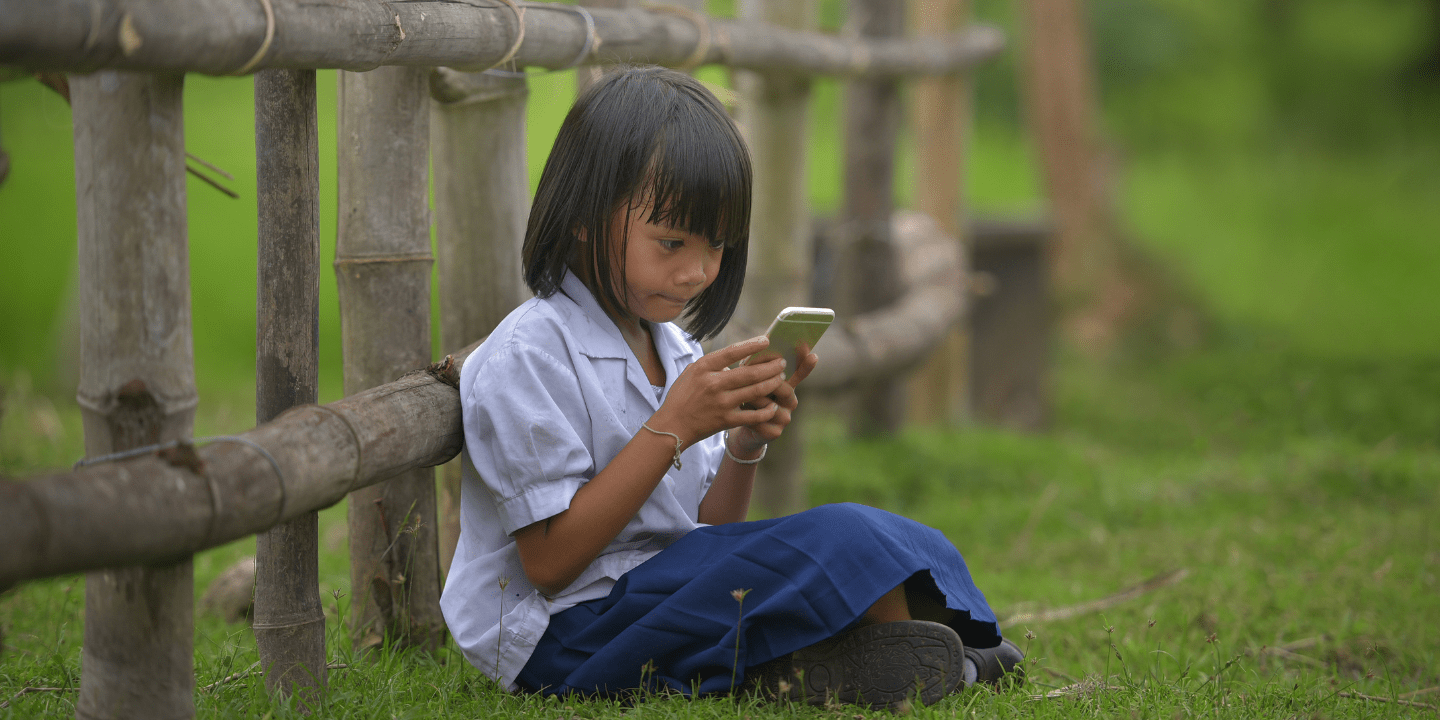
Technology in education - a tool on whose terms?
Research 30 Nov 2023 7 minute readACER has contributed an important case study on the use of technology in the Lao PDR education sector for the regional UNESCO GEM Report.
Southeast Asia has experienced rapid growth in the development and application of digital technology, and there is renewed interest in the role that technology can play in the education sector. Accelerated by extended periods of school closure and remote learning during the pandemic, digital technology is now recognised as having the potential to transform learning and offer a solution to persistent challenges in equity of access and quality of learning for students in the region.
However, little research has examined how effective technology is being integrated into the education sectors across Southeast Asia, to respond to the ongoing challenges as well as opportunities to improve learning.
The 2023 regional UNESCO Global Education Monitoring Report shines a spotlight on technology in education in Southeast Asia. Developed in partnership with the Southeast Asia Ministers of Education Organization (SEAMEO), and with the contribution of EdTech Hub, the fifth regional report covers 11 countries: Brunei Darussalam, Cambodia, Lao People’s Democratic Republic (Lao PDR), Indonesia, Malaysia, Myanmar, Philippines, Singapore, Thailand, Timor-Leste and Viet Nam. The editorially independent report provides an authoritative voice that informs education policies and monitoring of progress towards United Nations Sustainable Development Goal 4.
Drawing on our extensive research on technology and education, and ACER’s projects in Lao PDR, ACER was commissioned to develop the case study on technology integration in Lao PDR for the regional report. The study provides important insights into the experiences of key education stakeholders in Lao PDR, a country that continues to experience some of the lowest student learning outcomes in Southeast Asia.
The research demonstrates that Lao PDR has made significant progress in the development of its digital infrastructure and strengthened the regulatory environment in recent years to support future economic growth and human capital development.
Encouragingly, a number of important activities have occurred in Lao PDR in relation to the implementation and integration of educational technology.
- There is increased interest and investment in building digitally literate citizens and increasing digital proficiency in the workforce. COVID-19 has accelerated the adoption of technology and expanded digital infrastructure.
- There has been an expansion in the number of programs and practices that rely on educational technology.
- The Government launched the first ever ‘Digital Literacy Camp’ for students in Lao PDR. The specific digital learning needs and priorities of students, particularly girls, were a focus of the camps.
- There is evidence of innovative learning practices, such as educational broadcasting, distance/online/blended modes in the education sector.
- The Government of Lao PDR established a dedicated professional learning and resource platform to support teachers to deliver lessons and improve their digital skills.
- At the school level, there is evidence of teachers using technology to improve student interest and engagement.
- At the tertiary and higher education level, distance and open educational technologies have supported access to learning.
However, there are also challenges of equity and inclusion, quality, and efficiency associated with the use of educational technology in Lao PDR’s education sector, which are also reflected more broadly in the regional report.
- Despite investment, there is little evidence on the quality of digital tools and pedagogies being used in the education sector in Lao PDR, including any evidence of the impact of digital technology on student learning.
- There is evidence of disparate access, based on different digital skills and digital literacy levels amongst teachers, students, and their families. This creates a ’digital divide’.
- There is little evidence of how digital technology can be used or adapted to support students who face additional barriers, such as girls, students living in poverty, or students with disability.
- Girls face unequal access to technology and the opportunity to gain digital skills.
- Girls who belong to ethnic minority groups in Lao PDR have lower levels of digital skills than non-ethnic minority students.
- Teachers use digital technology, but not consistently, and need more support.
- The efficiency of current educational technologies requires further examination, with additional training at system and school level needed to enhance their use.
- Technology infrastructure investments and regulatory environments are also not consistently implemented in Lao PDR, which can undermine the potential to manage and scale educational technology.
- There is a lack of confidence and capacity to use technology in education management, assessment, or monitoring of student performance.
- Student safety risks, and issues with mental health and wellbeing during periods spent online, appear not to be widely considered as part of technology implementation in Lao PDR.
The findings of the regional report suggest that many of these challenges are not unique to Lao PDR. However, addressing the challenges will require ongoing support and investment from the Government of Lao PDR and its partners.
While the adoption of technology in education is still ongoing in Lao PDR and the broader Southeast Asia region, this research provides important insights that can better prepare the education sector for future digitalisation.
Read ACER’s case study on educational technology in Lao PDR, Technology in education: a case study on Lao People's Democratic Republic.
Explore the regional and global UNESCO GEM Reports:
Technology in education: Global Education Monitoring Report
2023 Southeast Asia Report - Technology in education
More on ACER’s research in Lao PDR:
Investing in teacher development in Lao PDR
Exploring system and school resilience in Asia
Lockdowns in Laos drive push for remote and blended learning
Education and development
More on ACER’s research on educational technology:
Universities need to train lecturers in online delivery, or they risk students dropping out
Improving remote learning for students with disability
Teaching over technology: educational priorities during COVID-19